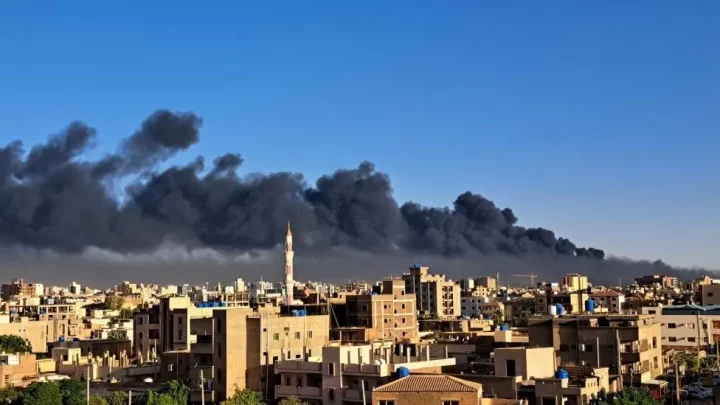The United Nations has warned that the civil unrest in Sudan could spread into neighbouring countries.
Sudan shares borders with Egypt, Ethiopia, Libya, Chad, the Central African Republic, Eritrea and South Sudan.
In an address to the security council on Tuesday, Antonio Guterres, the UN secretary-general, said the border countries that “have either been involved in conflict or seen serious civil unrest over the past decade” stand the risk of being affected.
“Sudan borders seven countries, all of which have either been involved in conflict or seen serious civil unrest over the past decade,” he said.
Advertisement
“The power struggle in Sudan is not only putting that country’s future at risk. It is lighting a fuse that could detonate across borders, causing immense suffering for years, and setting development back by decades.
“It risks catastrophic conflagration within Sudan that could engulf the whole region and beyond.”
On his part, Stephane Dujarric, UN spokesperson, said the crisis needs “a humanitarian pause” to enable the organisation to administer needed aid to civilians in the country.
Advertisement
“We need to stop the fighting immediately to try to get humanitarian aid to those who desperately need it. And obviously, some staff members are critical and stay behind, other staff can work remotely, so they will leave,” Dujarric said.
“But I think the most important thing is that we are remaining in Sudan at the highest level. And we’re continuing to engage with the parties and continuing to plead for a cessation of the hostilities.”
The violent clashes between Sudan’s army and the Rapid Support Forces (RSF), a paramilitary group, have killed over 400 people and injured thousands, according to the World Health Organisation (WHO).
Despite several ceasefire agreements by both sides, the fighting rages on, fueling fears that the death toll could be higher as people struggle to get healthcare, food, and shelter.
Advertisement
The Nigerian government had blamed the non-adherence to the ceasefire agreements by both parties as the major hindrance in the evacuation of Nigerians in Sudan.
Add a comment






